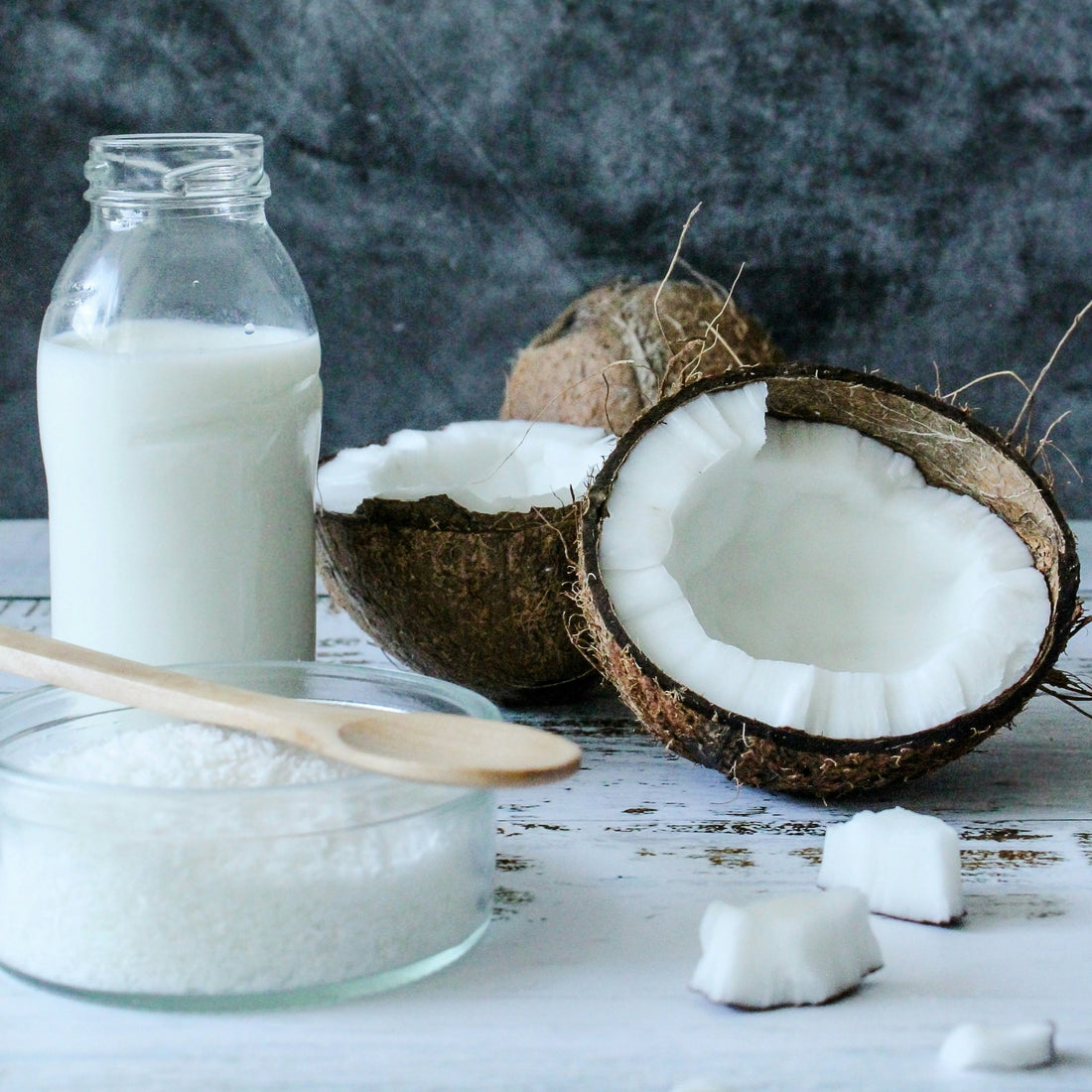Coconuts are often hailed as the "fruit of life" in many cultures, and for good reason. Not only are they versatile in culinary applications, but they also offer a plethora of health and skincare benefits. From coconut oil to coconut water and everything in between, coconut products have surged in popularity in recent years due to their nutritional value and potential health perks. In this blog, we'll dive into the world of coconut products and explore their many health benefits.
Before delving into the health benefits, it's essential to appreciate the versatility of coconuts. Every part of the coconut, from its flesh to its water and oil, can be used to create a wide array of products. Coconut milk, coconut flour, coconut sugar, coconut nectar, coconut cream, coconut butter, coconut oil and coconut water are examples of the diverse range of coconut-derived goods available in the market today.
Coconut products are not only delicious but also packed with essential nutrients. Coconut flesh, for instance, is rich in fiber, vitamins C, E, B1, B3, B5, and B6, as well as minerals like iron, selenium, sodium, calcium, magnesium, and phosphorus. Moreover, coconut oil is predominantly composed of medium-chain triglycerides (MCTs), a type of fat that is metabolized differently in the body compared to long-chain fatty acids, offering potential health benefits.
Health Benefits:
- Heart Health: Despite being high in saturated fats, coconut products have been associated with improving heart health (only plant sources of saturated fat are healthy). Studies suggest that the unique fatty acid composition of coconuts may raise levels of HDL (good) cholesterol while converting LDL (bad) cholesterol into a less harmful form, ultimately protecting you from the risk of heart disease. Polynesians have traditionally eaten coconut oil, and they have the lowest rate of heart disease in the world!
- Weight Management: The MCTs found in coconut oil have been linked to increased feelings of fullness and reduced calorie intake, potentially aiding in weight loss. Additionally, MCTs are readily used by the body for energy, making them less likely to be stored as fat.
- Improved Digestion: Coconut products, particularly coconut flesh and oil, are rich in dietary fiber, which supports digestive health by promoting regularity and preventing constipation. Moreover, coconut oil contains antimicrobial properties that may help combat harmful bacteria in the gut. It helps improve digestive disorders such as Crohn’s and Irritable Bowel Syndrome.
- Blood Sugar Regulation: Despite their sweetness, coconut products have a relatively low glycemic index (GI), meaning they cause a slower and steadier rise in blood sugar levels compared to high-GI foods. This can be beneficial for individuals with diabetes or those looking to manage their blood sugar levels.
- Hydration: Coconut water is a natural isotonic (it has the same solute and water concentration as body fluids) beverage packed with electrolytes like potassium, sodium, and magnesium, making it an excellent choice for rehydration after exercise or during hot weather. It's low in calories and sugar, making it a healthier alternative to sugary sports drinks.
Additionally, coconut oil may help support thyroid function, reduce chronic fatigue, and protect against alcohol damage to the liver.
Substituting coconut products into your diet is easy and delicious. You can use coconut oil for cooking and baking, spread it on toast or put a tablespoon in your coffee. Use coconut milk in curries and smoothies, coconut flour in gluten-free baking recipes, and coconut water as a refreshing beverage. Coconut cream is the solid part of a can of coconut milk and it can be used as a whipping cream, in ice cream or to thicken soups.
Coconut sugar can be substituted for white or brown sugar in equal amounts. Coconut sugar contains inulin which helps keep your gut healthy. It’s anti-inflammatory (other sugars are inflammatory which leads to many diseases) and has a low glycemic index, is less processed and therefore has small amounts of vitamins and minerals. Coconut sugar comes from dried coconut nectar, which can be used as a syrup.
Coconut butter, aka coconut manna, is made from the whole coconut and can be used like a nut butter; in smoothies, spread on toast or fruit, or as a replacement for dairy in desserts.
However, it's essential to consume coconut products in moderation, as they are calorie-dense and can contribute to weight gain if consumed excessively.
When buying coconut products look for virgin, organic, unrefined, and cold-pressed. Stick to full fat products, as all the beneficial nutrients are in found in the fat and the light versions are just watered down. The coconut products you can't find in the grocery store are available at some health food stores.
The antimicrobial and anti-inflammatory properties of coconut oil can also benefit dry and mature skin. Those with oily or acne prone skin will want to use it minimally or avoid it. Coconut oil can also be used on the head overnight to get rid of lice. Apply it to the hair and put a shower cap on. In the morning, rinse thoroughly, shampoo and use a lice comb. Coconut oil can also help with dermatitis, eczema, and psoriasis, and reduce the appearance of age spots. Serendipity Body Products uses coconut oil in their lip balm and body balm because it’s so nourishing for dry skin. They also use it in their liquid hand soap because it lathers well and is moisturizing.
Coconut products offer a myriad of health benefits, ranging from improved heart health to better digestion and from moisturizing skin to improving skin conditions. With their rich nutritional profile and versatility, incorporating coconut products into your diet and skincare can be a way to support your overall health and well-being. So why not harness the power of coconuts and reap the rewards they have to offer?
Remember, while coconut products can be a valuable addition to a balanced diet, it's essential to consult with a healthcare professional or nutritionist before making any significant changes to your diet, especially if you have underlying health conditions or concerns. Here's to enjoying the many products of coconuts and embracing a healthier lifestyle!

